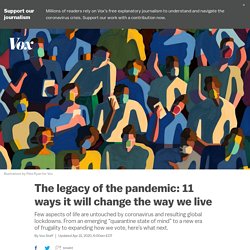

Fears of 3700 job losses in Rotorua in wake of Covid-19. Rotorua is set to lose more than 3700 jobs in the fallout of Covid-19, resulting in $186 million in lost earnings, according to a new report.

Photo: 123RF The Infometrics report, Economic impacts of Covid-19 on the Rotorua economy, was commissioned by Rotorua Lakes Council and focused specifically on the Rotorua district. The 34-page report, and a related webinar with Infometrics experts, cost the council $9775. It forecast a 7.8 percent contraction of the local economy. Local unemployment could rise to 10.7 percent, it said. Human rights advocate hopes Covid-19 can bring lasting change in NZ. : Kiwis were kind in lockdown - but not to essential workers. The kindness shown by Kiwis during coronavirus lockdown has been scientifically proven, and the news is good – unless you’re an essential worker.

According to a just-released international study into New Zealand’s unique “bubble” approach to Levels 4 and 3, we chose people who needed help when the time came to expand our bubbles, rather than people we most wanted to spend time with. But the opposite was the case for supermarket, healthcare and other essential workers, who were often shunned through fear they might bring the virus with them. What will COVID-19 mean for the Pacific? Coronavirus is bringing the world to a standstill as countries scramble to respond to the deadly pandemic.

Even countries with well-developed health systems are grappling with how to provide medical care for an overwhelming number of critically ill patients, should worst-case projections prove true. The reality is, even the most prepared countries may not be able to cope. If the virus spreads rapidly in developing countries, with health systems that are already weak or under-resourced, the outbreak could be even more devastating.
: Confronting graphs show COVID-19's social impact on New Zealand. Confronting graphs are beginning to paint the picture of COVID-19's social impact on New Zealand.

The Salvation Army's Social Policy and Parliamentary Unit released its COVID-19 Social Impact report on Thursday. "This fortnightly COVID-19 Social Impact Dashboard is an offering from The Salvation Army to try and record the outcomes of the new social realities in our nation, but particularly for poorer, vulnerable Kiwi facing serious hardship in this new normal," the report begins. The Salvation Army's lawyer and principal social policy analyst, Ronji Tanielu, told Newshub existing cracks in New Zealand's social welfare have been magnified by the COVID-19 Alert Level 4 lockdown. "Some of New Zealand's social challenges have been magnified as we've gone through lockdown. We've had reports from tenants and frontline workers of real anxiety and fear. Here's the data that shows Covid-19's impact in New Zealand. In April, the number of people on the jobseeker benefit increased, the cost of a hotel room in Queenstown nearly halved, and consumer confidence — a measure of people's feelings about the economy — was at a level last seen during the 2008 Global Financial Crisis.

These are just some statistics that reflect the consequences of the coronavirus pandemic, which has so far infected more than 1400 people in New Zealand and left 21 dead. The country's economy, which was mostly closed for the four-week lockdown between March 26 and April 27, has borne a heavy brunt. ANZ's business confidence index — a measure of the country's business conditions — has dropped to its lowest point since 1988. READ MORE: * Coronavirus: Level 2? We're going back to work * Coronavirus: Bunnings Warehouse cuts staff salaries and hours by 20% * Coronavirus: Tourism, hospitality, and retail to quit thousands of staff without more Government support * Benefit numbers exceed GFC - and worse to come. Coronavirus predictions: 11 ways the Covid-19 pandemic will change us and the economy. Part of the Pandemic Issue of The Highlight, our home for ambitious stories that explain our world.

Covid-19 has moved like wildfire — at first seemingly far away, then unnervingly close — as it has ripped across the world in a few months, leaving tens of thousands dead, economies flattened, and the futures of hundreds of millions of people in limbo. As many of us shelter in place with no end in sight, it’s only human for us to imagine how life will resume, even if the unfamiliar and unpredictable behavior of the virus has made it difficult to know with any certainty. The longer the global effort to stymie the pandemic through lockdown continues, however, the less likely we’ll reemerge into a world we recognize. Already, some things are clear: Health care, stretched to horrifying extremes in afflicted cities, must change, and it will. The world’s Instagram-fueled love affair with travel will cool. A “quarantine state of mind” will reign for weeks, if not months —Eleanor Cummins —Sam Blum. Insights from Big Data on How COVID-19 Is Changing Society.
Between the 1918 flu pandemic and the 2020 COVID-19 crisis, our ability to understand the effects of infectious diseases has increased exponentially.

Networked personal devices and automated sensors are now ubiquitous, not to mention communications technologies like the internet that allow us to share information almost instantaneously. These devices provide us with copious “big data” on people’s movement, the environment, economic trends and more. These new data – collected from an estimated 9.8 billion mobile phones, 2,200 satellites and more than 25 billion other digital sensors – are documenting the radical shifts in social and economic activities happening in response to the coronavirus pandemic. People are significantly changing their behavior, and the impacts are not affecting everyone equally. Big data can help us not only understand the crisis and get back to normal, but create a new, better normal. Parks Take on New Importance But not all urban green spaces are created equal.
: How the economy and society might change after the Covid-19 pandemic. OPINION: While much of the current debate about the post-Covid-19 world centres upon the future of work, the crisis also provides an opportunity to re-imagine other impacts on society and the economy.

This is especially relevant in countries like New Zealand, where our Covid-19 containment and eradication strategy will potentially require our borders to remain closed for months – and possibly into 2021. Consequently, there will not be a rapid return to 'normality' and we are going to have the rethink our approach to issues ranging from consumption to taxation. I have canvassed elsewhere that many office-based businesses will realise just how inefficient the pre-Covid-19 workplaces were, and this may result in more home or flexible working arrangements. Ideally it will also lead to more companies adopting reduced hours or a four-day work week based on enhanced productivity. This improved flexibility and reduction in working hours will facilitate a revolution in education. Contribute Now. Financial hardship a reality or serious risk for 74% of NZ households – survey.
One in three households are in financial difficulty and a greater number still at risk of tipping into hardship following the Covid crisis, finds a Commission for Financial Capability report.

The Commission for Financial Capability has this morning published findings on the financial vulnerability of New Zealanders following the Covid crisis. And it makes for stark reading. The survey of 3,085 people, undertaken during the level four lockdown in April, found 34% of households were in financial difficulty and 40% at risk of tipping into hardship. New Zealand is one of eight countries participating in the study, and fares worse than the two others that have so far reported results, Britain and Norway. By comparison, in the UK, 28% of respondents were in difficulty and 37% at risk. Among other findings in the CFFC report: It was alarming to see four out of 10 New Zealand households at risk of sliding into financial difficulty if their income reduced in the next three months, said Wrightson.